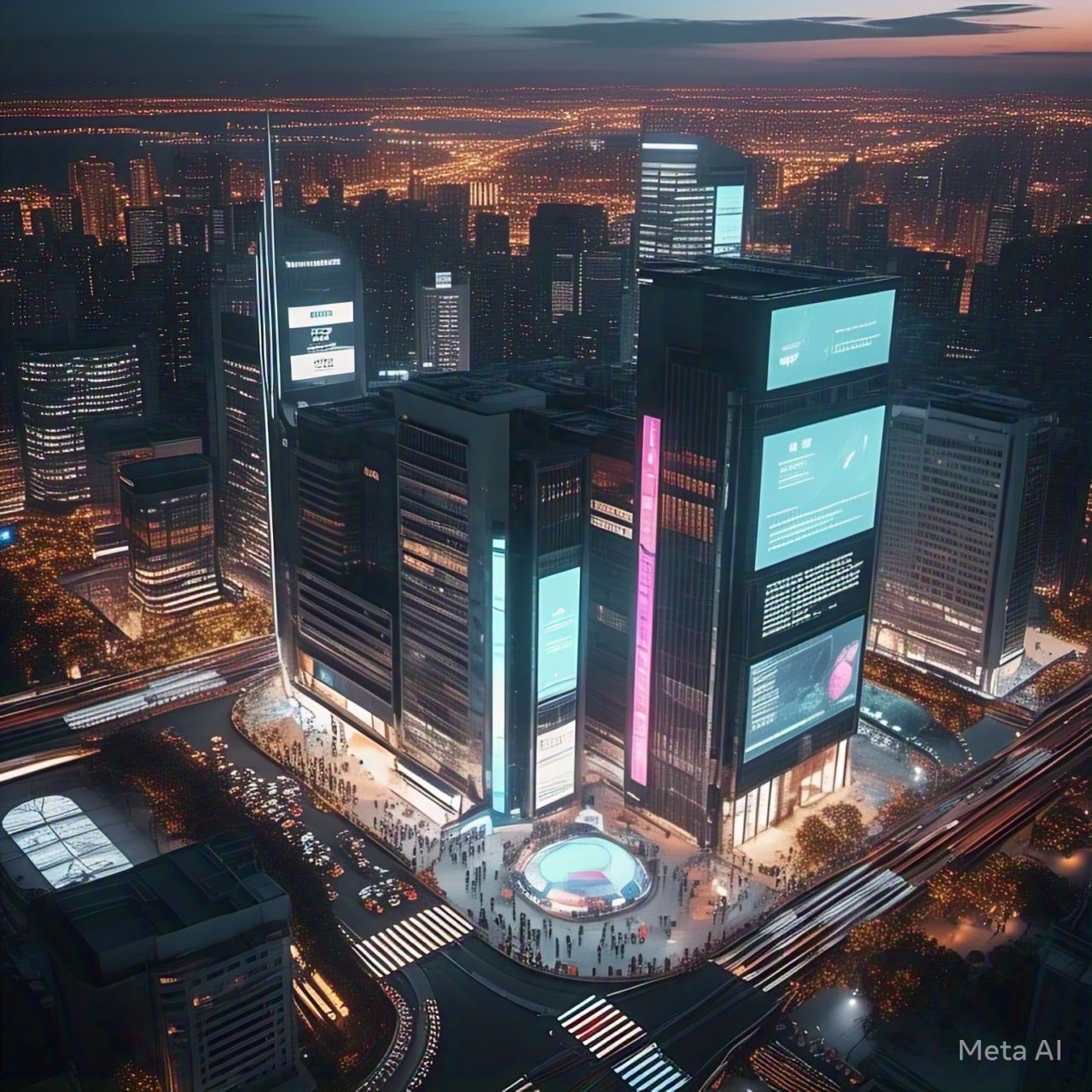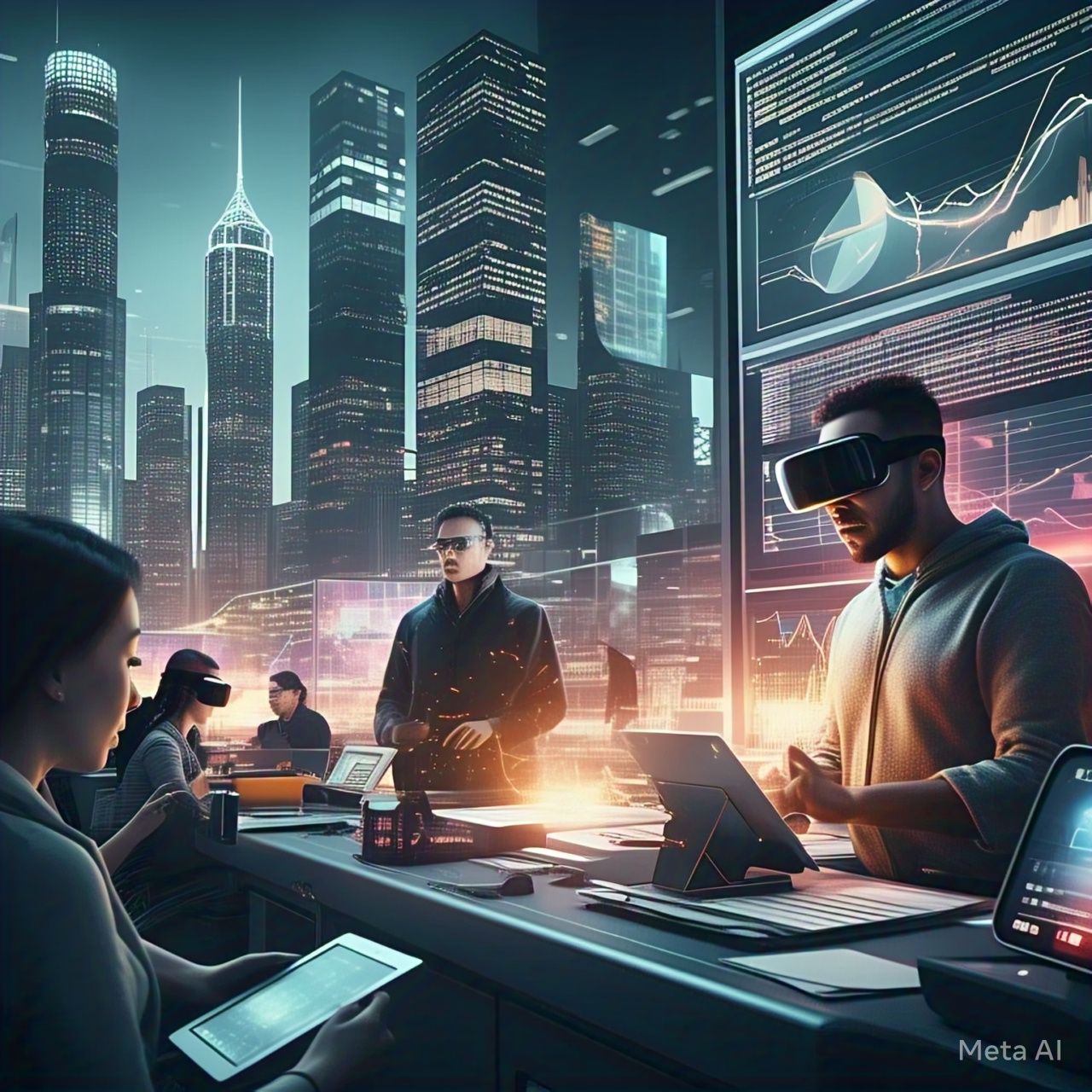Table of Contents
- Introduction
- Understanding Smart Cities
- The Role of AI in Smart Cities
- Traffic Management and Transportation
- Public Safety and Security
- Waste Management
- Energy Efficiency
- Healthcare Services
- Challenges of AI Implementation in Smart Cities
- Future Prospects of AI in Smart Cities
- Conclusion
- FAQs
Introduction
Artificial Intelligence (AI) has emerged as a transformative force in urban planning and city management. With the rise of smart cities, AI plays a pivotal role in enhancing efficiency, sustainability, and quality of life. This article explores how AI contributes to smart cities, the challenges it faces, and what the future holds.
Understanding Smart Cities
A smart city integrates advanced technologies, including the Internet of Things (IoT), AI, and data analytics, to optimize urban services and infrastructure. It focuses on sustainability, efficiency, and improving the daily lives of citizens.
Key Features of Smart Cities
- Smart transportation and traffic management
- Intelligent waste disposal systems
- Energy-efficient infrastructure
- Enhanced public safety and security
- Improved healthcare facilities
The Role of AI in Smart Cities
AI plays a crucial role in smart cities by automating processes, analyzing vast amounts of data, and making real-time decisions that optimize urban living.
1. Traffic Management and Transportation
AI helps manage traffic congestion, optimize public transportation, and reduce travel times.
- Smart Traffic Lights: AI-powered traffic lights adjust signal timing based on real-time traffic flow.
- Predictive Traffic Analysis: AI analyzes past data to predict congestion patterns.
- Autonomous Vehicles: Self-driving cars enhance mobility while reducing accidents.
2. Public Safety and Security
AI-driven surveillance and law enforcement solutions enhance security in smart cities.
- Facial Recognition Systems: Identifies potential threats in real-time.
- Crime Prediction Models: AI forecasts crime hotspots using historical data.
- Emergency Response Optimization: AI-driven dispatch systems improve emergency response times.
3. Waste Management
Efficient waste management is essential for a sustainable urban environment.
- Smart Bins: AI-enabled sensors alert authorities when bins need emptying.
- Route Optimization: AI suggests the shortest and most efficient routes for waste collection trucks.
- Recycling Automation: AI categorizes waste for efficient recycling.
4. Energy Efficiency
AI contributes to energy conservation and sustainability.
- Smart Grids: AI optimizes electricity distribution and reduces outages.
- Energy Consumption Prediction: AI predicts peak usage times to balance supply and demand.
- Smart Buildings: AI optimizes lighting, heating, and cooling systems based on occupancy.
5. Healthcare Services
AI revolutionizes healthcare in smart cities.
- AI-driven Diagnostics: Early disease detection and personalized treatment recommendations.
- Telemedicine: AI-powered chatbots assist patients with medical queries.
- Smart Ambulance Systems: AI identifies the fastest routes to hospitals, reducing response times.
Challenges of AI Implementation in Smart Cities
While AI brings numerous benefits, several challenges must be addressed.
| Challenge | Description |
|---|---|
| Data Privacy | Ensuring citizen data remains protected from breaches. |
| High Implementation Costs | Initial investment in AI technology can be substantial. |
| Infrastructure Requirements | Smart cities require advanced infrastructure to support AI systems. |
| Ethical Concerns | Bias in AI algorithms may lead to unfair decision-making. |
| Cybersecurity Threats | AI systems are vulnerable to cyberattacks and hacking. |
Future Prospects of AI in Smart Cities
The future of AI in smart cities looks promising. Advancements in deep learning, machine learning, and IoT integration will further optimize urban infrastructure. Key trends include:
- AI-powered Smart Assistants: Virtual assistants for urban management.
- 5G Integration: Faster data processing for AI-driven applications.
- Blockchain for Security: Ensuring transparency and data security in smart city operations.
- AI-driven Sustainable Solutions: Enhanced climate monitoring and environmental conservation efforts.
Conclusion
AI is revolutionizing smart cities by making urban life more efficient, secure, and sustainable. While challenges exist, technological advancements and policy frameworks will pave the way for a seamless AI-driven urban future.
FAQs
1. How does AI contribute to smart cities?
AI helps optimize traffic, enhance public safety, manage waste, improve energy efficiency, and revolutionize healthcare services in smart cities.
2. What are the biggest challenges in implementing AI in smart cities?
Challenges include data privacy concerns, high implementation costs, infrastructure requirements, ethical issues, and cybersecurity threats.
3. How does AI improve traffic management?
AI-powered smart traffic lights, predictive traffic analysis, and autonomous vehicles help reduce congestion and travel times.
4. Can AI make cities more sustainable?
Yes, AI optimizes energy consumption, reduces waste, and improves resource management, contributing to sustainability.
5. What is the future of AI in smart cities?
The future includes AI-powered virtual assistants, 5G integration, blockchain for security, and AI-driven sustainable solutions.




